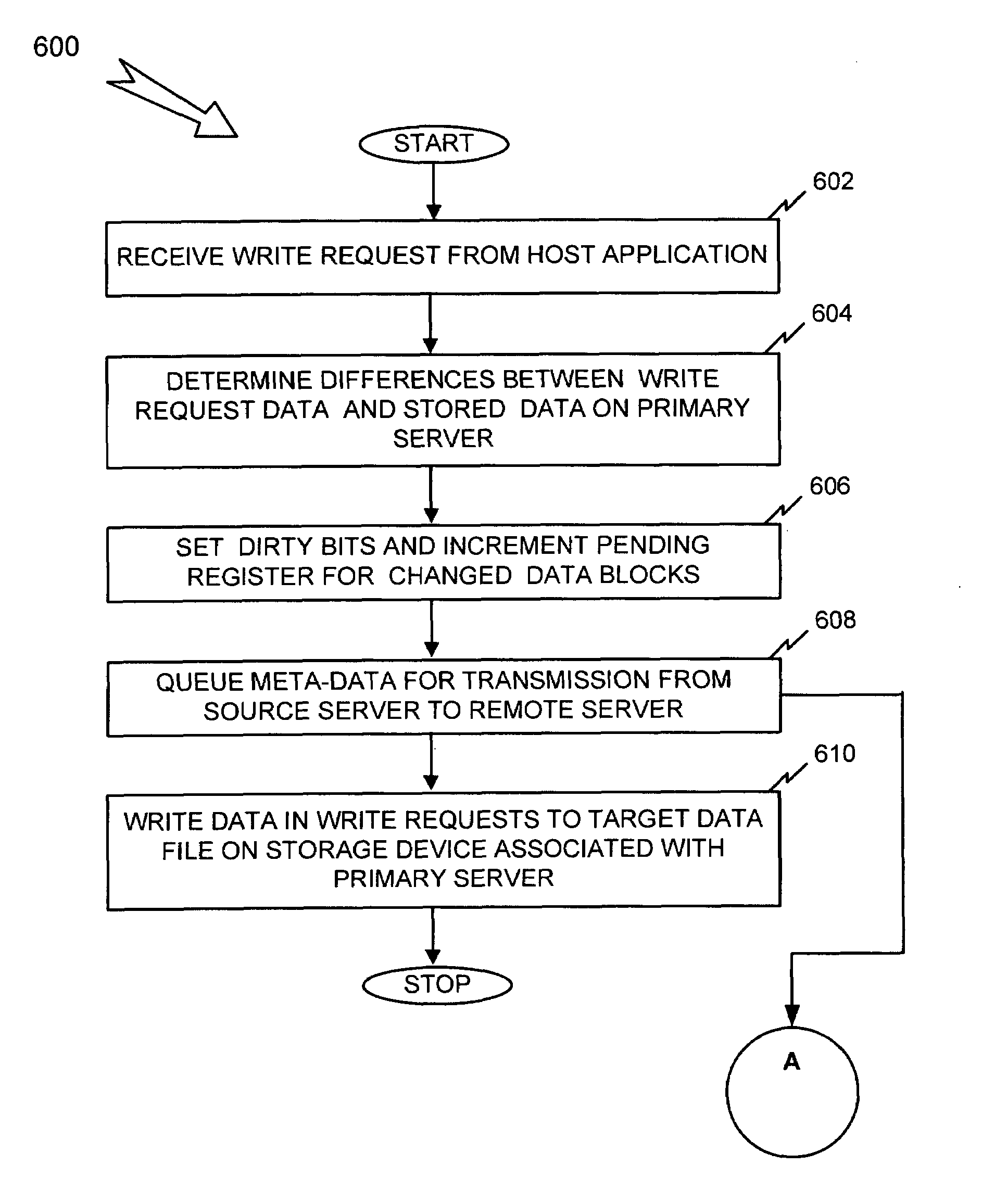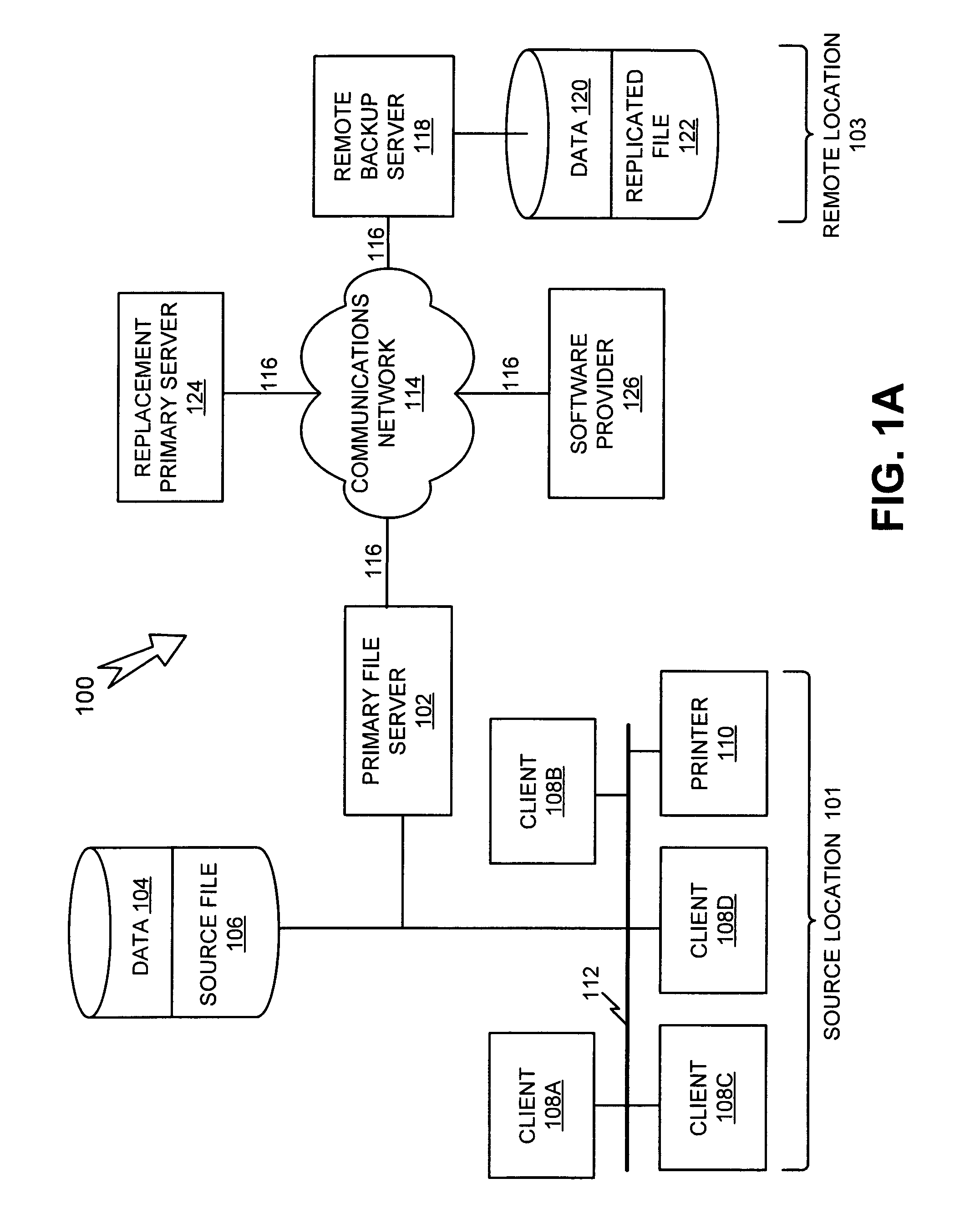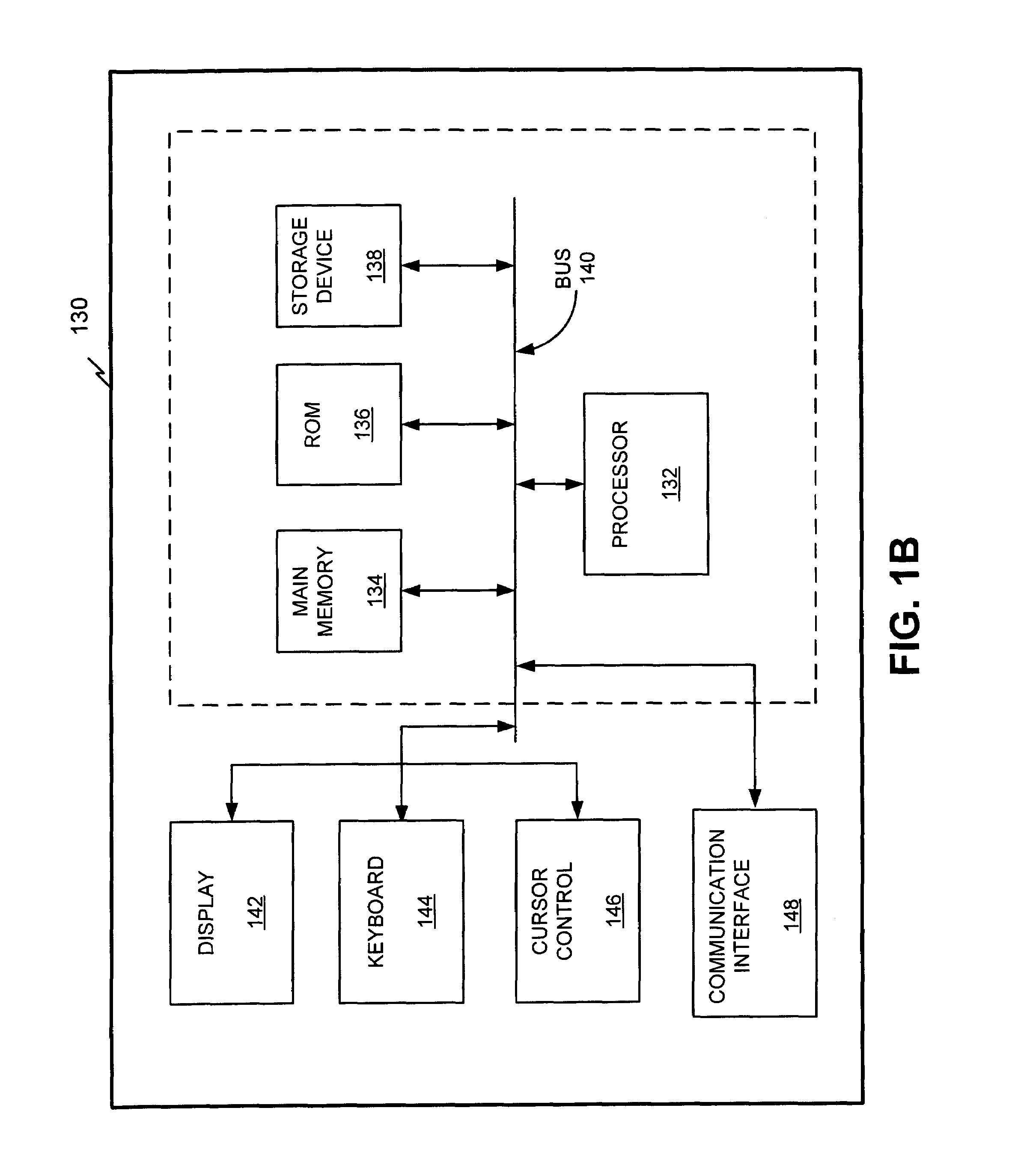System and method for replicating files in a computer network
a file and computer network technology, applied in the field of system and method for replicating files in a computer network, can solve the problems of difficult, or impossible, to replace data, and the entire master data file archive can take many hours to perform, and achieve the effect of efficiently utilizing network bandwidth and substantially real-time synchronization
- Summary
- Abstract
- Description
- Claims
- Application Information
AI Technical Summary
Benefits of technology
Problems solved by technology
Method used
Image
Examples
Embodiment Construction
[0030]Subheadings used hereinbelow are to assist the reader and should not be construed as defining or in any way limiting embodiments and implementations of the invention. In addition, the disclosure includes examples which are illustrative in nature and are not intended to limit the disclosed invention in anyway.
[0031]Embodiments of the invention replicate data from a primary server to a remote server in substantially real-time. Real-time operation is facilitated by transmitting only those portions of the data that have changed. Furthermore, data changes are compressed using data compression techniques known in the relevant arts in order to further reduce the amount of data transmitted over a network. Hash functions are used in conjunction with other information making up a block temporal signature so that transmitted data can be verified, the ordering of data can be maintained, and so that corrupted data can be identified and re-transmitted without requiring re-transmission of un...
PUM
 Login to View More
Login to View More Abstract
Description
Claims
Application Information
 Login to View More
Login to View More - R&D
- Intellectual Property
- Life Sciences
- Materials
- Tech Scout
- Unparalleled Data Quality
- Higher Quality Content
- 60% Fewer Hallucinations
Browse by: Latest US Patents, China's latest patents, Technical Efficacy Thesaurus, Application Domain, Technology Topic, Popular Technical Reports.
© 2025 PatSnap. All rights reserved.Legal|Privacy policy|Modern Slavery Act Transparency Statement|Sitemap|About US| Contact US: help@patsnap.com



